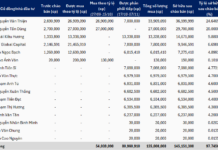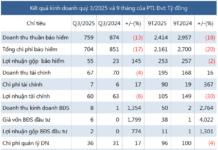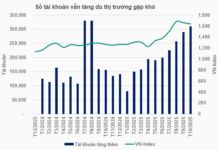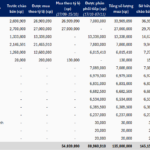
Working on the holidays of 30/4-1/5, how will employees be paid?
According to regulations in Article 98 and Article 112 of the 2019 Labor Code, if an employee works on both April 30 and May 1, in addition to receiving their holiday pay, they will also be paid overtime. Accordingly, overtime pay is determined according to Article 98 of the Labor Code as follows:
Daytime overtime pay = 300% x Unit wage or actual wage paid according to the work being done.
Nighttime overtime pay = 390% x Unit wage or actual wage paid according to the work being done.
Thus, if both holiday pay and overtime pay are included, employees who work on April 30 and May 1 will receive at least 400% of their salary if they work during the day. In cases where employees work at night, they will receive at least 490% of their salary.
For example:
Mr. A works at factory X and is paid 200,000 VND/day. Due to a high demand for orders, Mr. A was required to work at the factory on April 30 and May 1 as usual.
According to the above regulation, Mr. A’s salary for working on the two holidays is calculated as follows:
300% x 200,000 VND/day = 600,000 VND/day (excluding holiday pay).
Therefore, Mr. A’s total daily salary for working during the holiday is 200,000 VND/day + 600,000 VND/day = 800,000 VND/day.
When working on a compensatory day off for a holiday, how will employees be paid?
Clause 3 of Article 55 of Decree 145/2020/ND-CP guiding overtime pay on compensatory days off states that employees who work overtime on public holidays or Tet holidays that coincide with weekly rest days will be paid overtime for the public holiday or Tet holiday. If overtime is worked on a compensatory day off when a public holiday or Tet holiday coincides with a weekly rest day, employees will be paid overtime for the weekly rest day.
Thus, employees who work on a compensatory day off for a holiday will be paid overtime as if they were working overtime on a regular weekly rest day. Accordingly, the salary that employees will receive when working on a compensatory day off will be calculated as follows:
Daytime overtime pay = 200% x Unit wage or actual wage paid according to the work being done.
Nighttime overtime pay = 270% x Unit wage or actual wage paid according to the work being done.
Are businesses required to give bonuses to employees on the occasions of 30/4 and 1/5?
According to Clause 1 of Article 104 of the 2019 Labor Code, a bonus is a sum of money, property, or other form of compensation that an employer gives to an employee based on the employee’s performance, business results, and completion of tasks.
With this regulation, whether or not an employee receives a bonus will be determined based on their performance, business results, and completion of tasks. This is decided by the employer.
Therefore, businesses may choose to give bonuses or not to employees on the occasions of 30/4 and 1/5.
However, if the business’s bonus regulations or other agreements with employees include a provision for cash or in-kind bonuses on the occasions of 30/4 and 01/5, the business must fulfill this commitment.
What is the bonus amount for the occasion of 30/4 and 1/5 this year?
According to Article 104 of the 2019 Labor Code, the amount of the bonus for the occasion of 30/4 and 01/5 is decided by the employer. Even if a business chooses to give bonuses to employees on the occasion of 30/4 and 1/5, they have the discretion to determine the amount and form of the bonus.
Current regulations do not limit the amount of the bonus for the occasion of 30/4 and 1/5. Therefore, the bonus amount for the occasion of 30/4 and 01/5 will not be fixed. Depending on the business’s financial resources, the employer may give a large or small bonus to employees.
If the business has high profits from production and business activities, employees will receive a higher bonus. Conversely, if the financial situation is difficult and financial resources are limited, the business will only give a small bonus.
In addition to giving cash bonuses to employees, businesses may also give bonuses in kind or in other forms on the occasion of 30/4 and 1/5. This is entirely permitted by law.
Also according to Clause 1 of Article 104 of the 2019 Labor Code, in addition to giving cash bonuses to employees, employers may give bonuses in one or a combination of the following ways:
– Bonus for 30/4 and 1/5 in the form of property: The value of the property bonus will depend on the business’s finances. The business may give employees products that the business itself produces or sells, or products that are provided by partners or other businesses.
For example, bonuses could include motorbikes, electric scooters, bicycles, … or essential home appliances such as rice cookers, refrigerators, TVs, washing machines, cookware sets, air fryers, blenders, …
– Bonuses for Tet in other forms such as discount vouchers for shopping at supermarkets, spa and healthcare packages, tours, or plane or train tickets to return home…





































